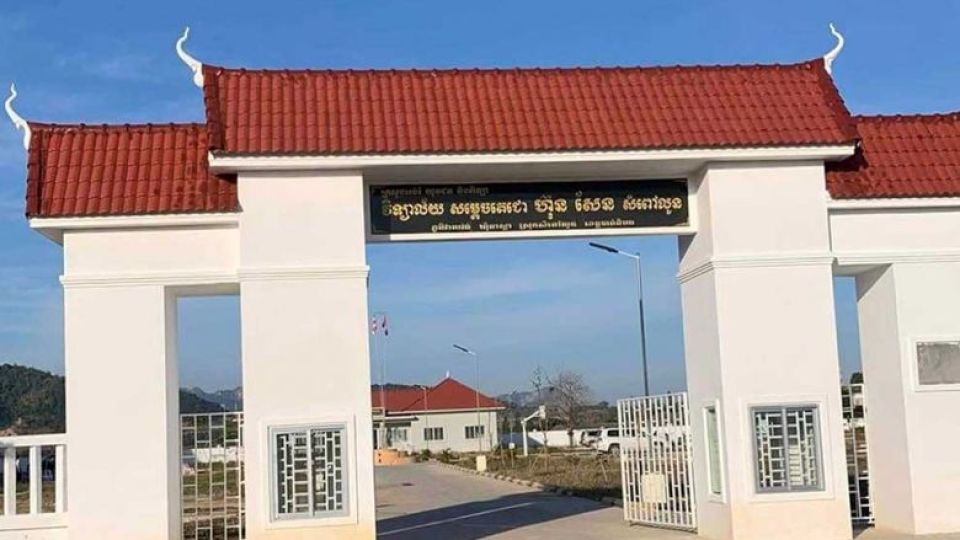March 11, 2022
PNNOM PENH – A student’s parent and the principal of a high school in Battambang province are at odds after the latter temporarily seized phones from students.
Sokha Bonna, principal of Samdech Techo Hun Sen Sampov Loun High School in Sampov Loun district, told The Post on March 8 that he had seized 10 phones from students who used them during class hours. The seizures were based on rules that the school – in consultation with more than 500 parents – had implemented three years ago.
“We did this to improve the students’ focus when it comes to their education, because this year our school set the goal of achieving a 95 per cent pass rate in the grade 9 and 12 national exams. In addition, this policy has been in place for three years already and is broadly supported by the parents of our students,” he said, adding that seized phones are usually held for between six months and a year.
He said the complaints had come from the father of a student who was caught using his phone in class on February 3. The parent had become angry and tried to retrieve the phone.
Bou Hoeurn, 50, whose son had his phone confiscated, said his son used the phone’s calculator function to solve a physics problem and did not play games as claimed by the teacher.
“The teacher took the phone from my son on the morning of February 3. That afternoon I went to meet the principal to apologise on my son’s behalf and asked for the phone to be returned – I also offered to have my son sign a letter promising good behaviour. The principal refused, telling me to wait until the end of February before he would return it,” he said.
Ieng Sothea, the Grade 10 physics teacher who took the phone from the student, told The Post that he had taken it and handed it to the principal in accordance with school regulations.
“I saw the student playing games while I explained a physics lesson to the class. At the time, I was very disappointed because I tried very hard to pass on knowledge to my students, but he was not attentive and was disrupting the class,” he said.
Hoeurn said he sought the return of the phone so that his son could study online, as the Ministry of Education, Youth and Sport had recommended. He said he returned to the school on February 5 to ask for it again, only to be warned by the principal that his son would be expelled if he insisted on it being returned ahead of schedule – which the principal now said was the end of the year.
Prak Phalla, a mother whose son’s phone had also been taken previously, supported the school measures, saying teachers are just like parents who always want their children to behave well.
“I want the teachers and principal – as well as parents and guardians – to understand one another and be prepared to forgive small errors. If students make a mistake, they should certainly be punished, but the punishments should not be so harsh that they affect their mental health,” she said.
Om Sarin, deputy head of the education office in the district, told The Post that the district governor had held an emergency meeting on March 7 to examine the issue and find a solution. The principal attended the meeting, but refused to compromise on his school policy.
“Maintaining strict rules that add to the quality and efficiency of children’s education is definitely the right thing to do, but we must also be prepared to examine each individual situation on its own merits,” he added.


